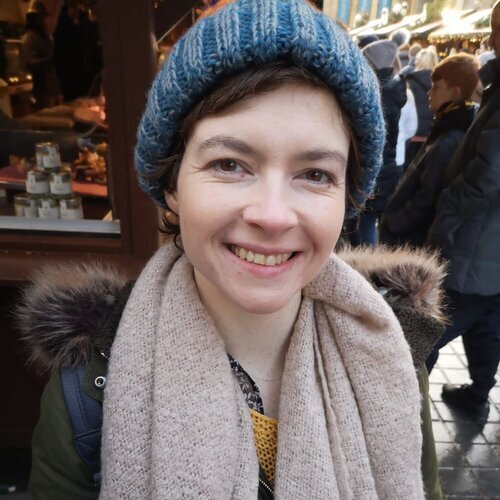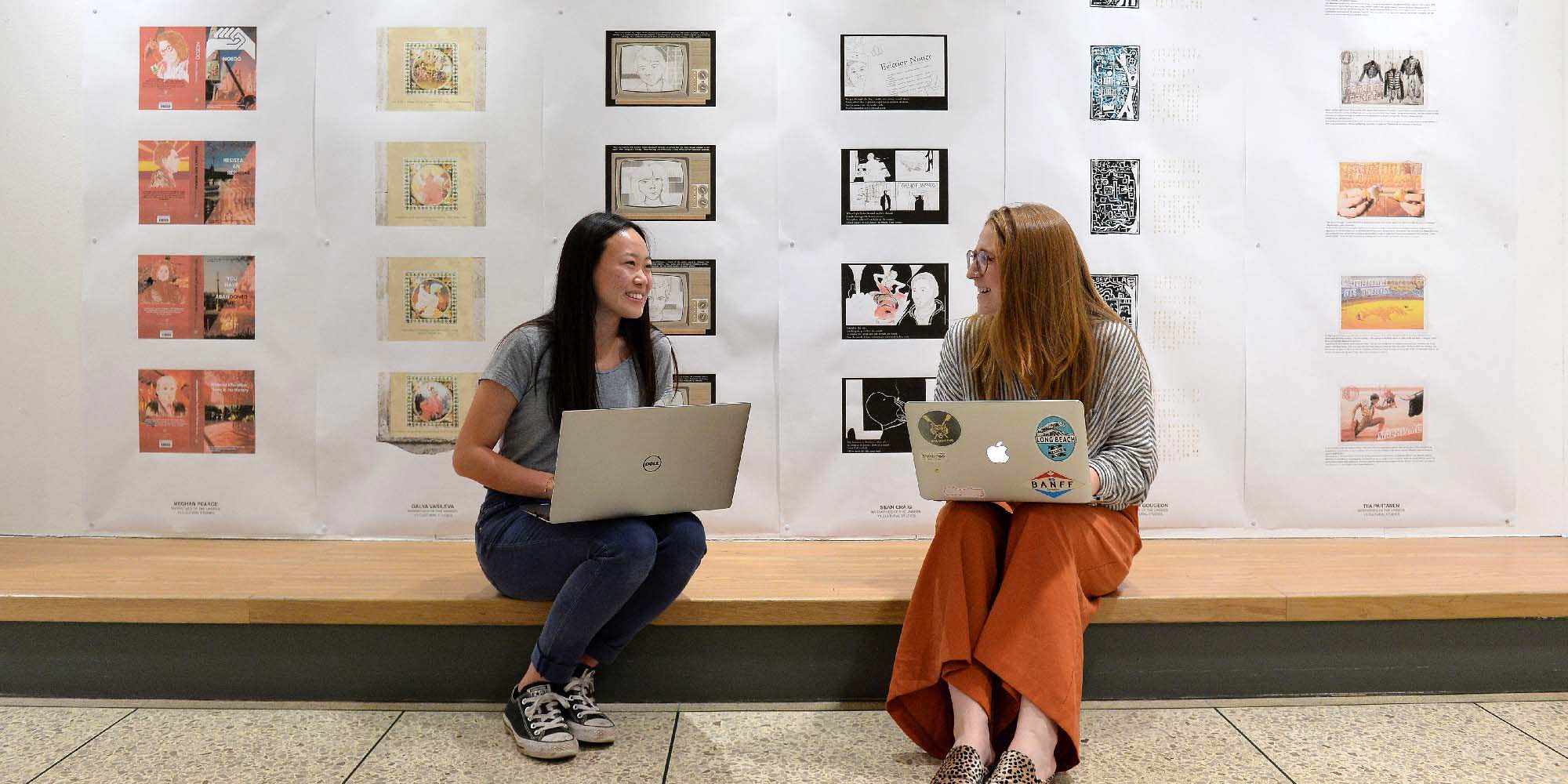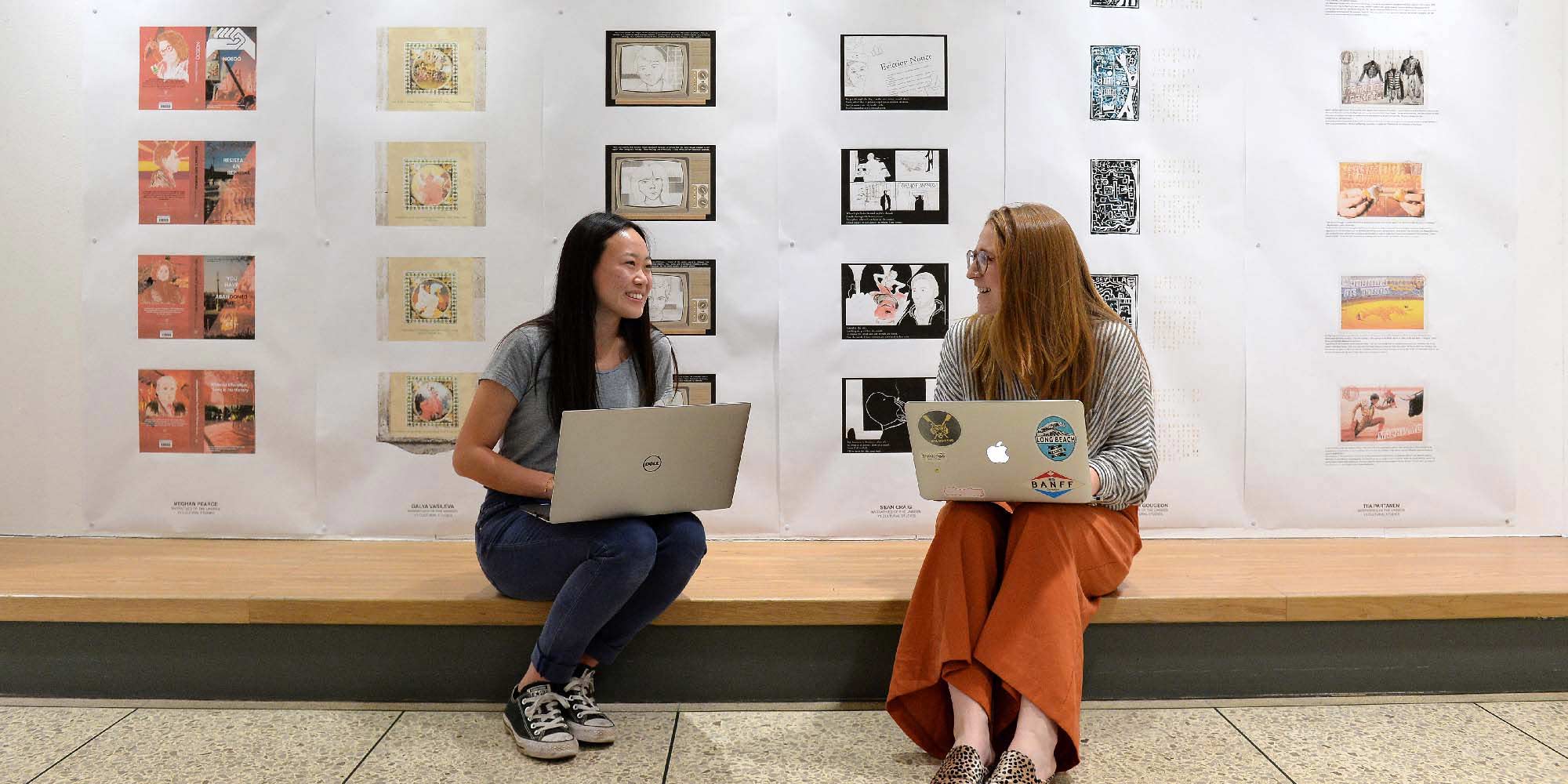MLitt/PgDip/PgCert Interdisciplinary English Studies
ApplyKey facts
- Start date: September
- Study mode and duration: MLitt: 12 months full-time; 24 months part-time
PgDip: 9 months full-time; 21 months part-time
PgCert: 4 months full-time; 9 months part-time
Study with us
- opportunity to take your studies to a more specialised level or in a new direction
- find connection between literary studies and other academic disciplines
- benefit from the guidance of an expert supervisor
- focus mainly on literature but also on other cultural practices and language
Why this course?
The MLitt in Interdisciplinary English Studies focuses on the representation, imaginary transformation and symbolisation of culture, mediated through language and literature.
This is achieved by drawing on the interdisciplinary strengths of the Department of Humanities, and the English Studies section within the school.
The course will prepare you to think about the ways in which all aspects of culture depend on narrative, fiction and language. You can apply this to working in education, business, government or a third-sector organisation.
The course also prepares for undertaking a PhD, which generally requires a Masters qualification as an entry requirement.


Interested in postgraduate study?
At the Faculty of Humanities and Social Sciences, our friendly and knowledgeable team will be available to provide you with all the information you need to kick-start your postgraduate journey at the University of Strathclyde. Register for upcoming events below:
What you'll study
The core class Research Skills and Methods in Humanities, is taught in Semester 1. You can choose five further classes to be taken over Semesters 1 & 2.
You'll also write a 15,000-word dissertation.
We have particular expertise in:
- 20th and 21st-century Popular Culture
- Animal Studies
- Contemporary Scottish Literature
- Gender and Sexuality
- Heritage
- Linguistics and Cognitive Literary Studies
- Postcolonial Studies
- Renaissance Studies
- Scottish Studies
- Victorian, Edwardian and Neo-Victorian Studies
English Studies Research Placement
The placement option provides the opportunity to put learning and research into practice in a real-world environment, conducting a piece of research according to a brief provided by the placement organisation in consultation with the University.
You'll be given the opportunity to apply for designated research placements as enrolment on placement is not guaranteed.
Learning & teaching
Classes are taught by two-hour weekly seminars, with some lecture content, and by supervision of dissertation and other projects.
Assessment
The course will be assessed by written assignments, and in some cases a presentation will form a part of the assessment.
Research Skills & Methods in Humanities
This class aims to provide students who are undertaking interdisciplinary research with a broad introduction to a range of methods and skills in humanities research, and to construct your own training pathway in order to gain specific expertise in a various methodologies or skills.
Fleshy Histories: Meat Eating & Meat Avoidance, 1500 to the Present
This class will engage students with literary and historical materials, and with theoretical work from animal studies and ecofeminism. This will inform discussions about the place, meaning and function of meat eating and meat avoidance, and debates about human-animal relations, from the early modern to the modern world.
As well as philosophical and religious work you'll read a range of primary materials, including literary works from A String of Pearls (aka Sweeney Todd) to Roald Dahl’s Pig; from Swift’s Modest Proposal to Coetzee’s Lives of Animals, via Dracula, and develop skills in textual analysis and critical and theoretical engagement.
Global Queers: Travel Writing & Sexual Politics
This class is designed to engage students with recent research on sexuality in a global context.
This continues to be a controversial topic with key global institutions and organisations from churches to the UN being unable to forge an internal consensus about the protection and acceptance of LGBTQ lives.
Through looking at non-fiction writing, this class will introduce students to key issue in the field through the perspective of writers who travel across real and gender/sexual border and boundaries.
Introduction to Intercultural Communication
This class critically applies the linguistic theory of communication, and theoretical approaches to culture, to a range of problems in intercultural communication. We explore what a culture is, and whether cultures differ systematically. We learn about the linguistic theory of communication, and approaches to discourse and conversation, and speech acts, including ways in which these differ between cultures.
We consider how face and politeness can be theorized, and how they differ between cultures. We look at how languages differ, and whether differences in language lead to differences in thought. We look at the self, and identity, and their relation to culture and cultural difference, and we see how mobilities relate to intercultural communication.
This class is relevant for those who aim to teach English to speakers of other languages who need to understand issues around intercultural communication. It is also relevant to those studying literature who want to understand how communication works, particularly in the culturally complex situations in which literature can arise.
English Studies Research Placement
The placement option provides students with the opportunity to put their learning and research into practice in a real-world environment, conducting a piece of research according to a brief provided by the placement organisation in consultation with the module convenor. On successful completion of the module, the student will have:
- gained experience in putting their Interdisciplinary English Studies learning and research training into practice outside the academy
- gained experience in delivering a piece of research to a client's brief
- gained experience in negotiating the demands of two different institutions (the university and placement provider)
- demonstrated an ability to critically reflect upon their research practices and outputs
Graduates in English possess skills in written and spoken communication, working independently and thinking critically (HEA Student employability profiles), and this class offers an opportunity to put those skills to work in a real world context.
Transcultural Fandom and British Popular Culture
This Masters option explores online fanfiction and fan communities and investigates how they work with and transform key popular texts and genres from British literary history. We will study reading and writing practices and consider questions of adaptation across cultures, in relation to texts and themes which may have a global presence across different forms of media. Fan studies is a growing area within media/cultural studies, and fanfiction studies is developing as a new field of exploration for literary scholars. We will read cutting-edge as well as canonical critical works in fan studies, and consider through this class how this field is developing and what new directions are emerging for research and scholarship.
The 15,000 word dissertation offers you the opportunity further to explore issues of particular interest, encountered during the course. Dissertations should seek to make a scholarly contribution to the literary, historical and theoretical areas of enquiry that make up the Interdisciplinary English Studies.
Placement: Learning through practice
MLitt graduate Grace speaks about her placement at the Alasdair Gray Archive, a public resource dedicated to the life and work of the renowned Glasgow artist and writer.
Entry requirements
| Academic requirements | Minimum upper second-class Honour degree, or overseas equivalent, in English literature or a related subject. |
|---|---|
| English language requirements | Please check our English requirements before making your application. |
Pre-Masters preparation course
The Pre-Masters Programme is a preparation course held at the University of Strathclyde International Study Centre, for international students (non-UK/Ireland) who do not meet the academic entry requirements for a Masters degree at University of Strathclyde.
Upon successful completion, you'll be able to progress to this degree course at the University of Strathclyde.
Please note: Previous Maths & English qualifications and your undergraduate degree must meet GTCS minimum entry requirements as well as the pre-Masters course and an interview will be conducted before an offer can be made.
Chat to a student ambassador
If you want to know more about what it’s like to be a Humanities & Social Sciences student at the University of Strathclyde, a selection of our current students are here to help!
Our Unibuddy ambassadors can answer all the questions you might have about courses and studying at Strathclyde, along with offering insight into their experiences of life in Glasgow and Scotland.
Chat to a student ambassadorOur students

Tyler Bingham
United States
I can say that the English department has an extraordinarily welcoming faculty, and I would recommend that any new student feel comfortable getting in touch with them. It can be nerve wracking to ask questions or seek advice outside of class, but it has been my experience that they are more than willing to offer their advice and guidance if you need it.

Yao Wang
China
Take a more active role in discussion during the tutorial and don’t be afraid to communicate with professors. Most of the time, when I was struggling on things, a short chat with a teacher can help me greatly.

Deborah Crowe
UK
I applied to Interdisciplinary English Studies as I am genuinely interested in how novels are shaped by society and vice-versa...if you love English Literature and how it relates to the world around us, do it!
Fees & funding
All fees quoted are for full-time courses and per academic year unless stated otherwise.
Fees may be subject to updates to maintain accuracy. Tuition fees will be notified in your offer letter.
All fees are in £ sterling, unless otherwise stated, and may be subject to revision.
Annual revision of fees
Students on programmes of study of more than one year (or studying standalone modules) should be aware that tuition fees are revised annually and may increase in subsequent years of study. Annual increases will generally reflect UK inflation rates and increases to programme delivery costs.
| Scotland, England, Wales, Northern Ireland & Ireland | Mlitt or MSc: Full time - £8,700 PgDip: Full time - £5,800 PgCert: £2,900 *Please note, Year 2 fee will be subject to an increase |
|---|---|
| International | £19,600 |
| Available scholarships | Take a look at our scholarships search for funding opportunities. |
| Additional costs | International students may have associated visa and immigration costs. Please see student visa guidance for more information. |
Please note: the fees shown are annual and may be subject to an increase each year. Find out more about fees.
How can I fund my course?
Scottish postgraduate students
Scottish postgraduate students may be able to apply for support from the Student Awards Agency Scotland (SAAS). The support is in the form of a tuition fee loan and for eligible students, a living cost loan. Find out more about the support and how to apply.
Don’t forget to check our scholarship search for more help with fees and funding.
Students coming from England
Students ordinarily resident in England may be to apply for postgraduate support from Student Finance England. The support is a loan of up to £10,280 which can be used for both tuition fees and living costs. Find out more about the support and how to apply.
Don’t forget to check our scholarship search for more help with fees and funding.
Students coming from Wales
Students ordinarily resident in Wales may be to apply for postgraduate support from Student Finance Wales. The support is a loan of up to £10,280 which can be used for both tuition fees and living costs. Find out more about the support and how to apply.
Don’t forget to check our scholarship search for more help with fees and funding.
Students coming from Northern Ireland
Postgraduate students who are ordinarily resident in Northern Ireland may be able to apply for support from Student Finance Northern Ireland. The support is a tuition fee loan of up to £5,500. Find out more about the support and how to apply.
Don’t forget to check our scholarship search for more help with fees and funding.
International students
We've a large range of scholarships available to help you fund your studies. Check our scholarship search for more help with fees and funding.
International students
We've a thriving international community with students coming here to study from over 140 countries across the world. Find out all you need to know about studying in Glasgow at Strathclyde and hear from students about their experiences.
Visit our international students' section
Faculty of Humanities & Social Sciences Scholarships
- EU Engagement Scholarships are available to EU applicants who would have previously been eligible for Home (Scottish/EU) fee status.
- International Postgraduate Taught Scholarships worth between £4,000 and £5,000 are open to applications from non-EU international applicants beginning full-time, face-to-face programmes.
Careers
Graduates in the MLitt in Interdisciplinary English Studies have particular skills in close analysis of textual practices, in the understanding of the symbolic structures of culture, and the role of tradition; they are skilled in formulating arguments and in writing documents; they are skilled in undertaking research in an original and innovative way and reporting on it.
These skills make graduates from this course suited to a variety of further opportunities, including progress to PhD, for which this course would be a prerequisite eg for SGSAH funding.
These include:
- teaching, including teaching English as a foreign language
- marketing
- acting as a researcher
- work in the media
Glasgow is Scotland's biggest & most cosmopolitan city
Our campus is based right in the very heart of Glasgow. We're in the city centre, next to the Merchant City, both of which are great locations for sightseeing, shopping and socialising alongside your studies.
Life in Glasgow
Apply
Start date: Sep 2024
Interdisciplinary English Studies
Start date: Sep 2024
Interdisciplinary English Studies
Contact us
Prospective student enquiries
Contact a member of our team on LiveChat between 10am and 4pm (GMT)
Telephone: +44 (0) 141 444 8600
Dr Rodge Glass
Convener of the MLitts in Interdisciplinary English Studies and Creative Writin
Email: r.glass@strath.ac.uk
Have you considered?
We've a range of postgraduate taught and Masters courses similar to this one which may also be of interest.

